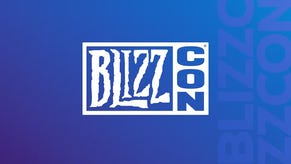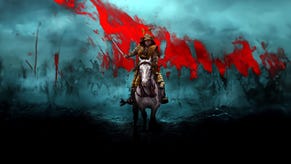The 10 most influential games journalists in Britain today
Lists are brilliant. Channel 4 built a business out of them, so we're not ashamed. Here are the ten most respected, influential games journalists working the UK trade today. These are the people PR want to kiss, the people you don't leave alone in a room with your CEO, the people who'll make you money if you give them power. Your opinion and that of other journalists, both in the UK and abroad, is formed by the names you'll see below. These are the people that choose what you see.
Didn't make it? Try harder.
- Tom Bramwell (Editor, Eurogamer.net)
It's hard to argue against this. Eurogamer.net is by far the most read independent videogames publication in Britain, and is growing fast. Tom took over as editor from long-term boss Kristan Reed at the end of last year after eight years as deputy and is seen in British editorial as the "journalists' journalist". Bramwell was picked by the UK games trade as the best writer in the business at last year's Game Media Awards for good reason: no one else in the post-NGJ generation is moulding videogames coverage in the United Kingdom in a more violent or high-profile manner. His scores and opinions matter financially, making his words and top placement on his website a must for any "serious" publisher-side campaign on any format. End of. Number one.
- Tim Clark (Editor, Official PlayStation Magazine)
It's not so much for his writing skills as for his management of the UK's Official PS Magazine that Clark takes second place in this list. British PR is forced to go cap in hand to OPS with cover requests and Clark's the man they have to woo. Any PlayStation game launching in the UK vies for place here, and front-page placement is gold. Clark is the door to without doubt the most sought after paper space in the UK, and has worked his way up to boss from online editor over many years. His decisions affect sales uniquely in games journalism, but it would be tough to say he's driving aesthetic coverage of games in Britain in any meaningful way. Hence, number two.
- Stuart Dinsey (Managing director, Intent Media)
Is he a journalist? Not in his day job, but Dinsey's fast to come out of "retirement" with his hair-dryer editorial when need be. While insiders readily admit the MCV-owner has passed over to the "dark side" of business development, Dinsey still regularly writes for the omnipresent British business journal, and it would be fair to say that very few share either his contact-base or iron influence on the UK trade. Dinsey enjoys a well-deserved reputation as a ferocious back-room operator and is nigh on impossible to compete against in "his space". A list of "influential British games journalists" would be ridiculous without him highly placed.
- Johnny Minkley (Editor, Eurogamer TV)
Minkley's long-time position as games commentator on Radio 1's Jo Whiley Show and a lengthy career in British games journalism make him an enviable target for any website or paper publisher. As full-time editor of Eurogamer TV, Minkley has managed to procure major exclusives combining the mainstream coverage of Radio and the core demographic reach of Eurogamer, most recently securing a global first with Guitar Hero: World Tour. Further, Minkley's time as editor of MCV under Stuart Dinsey and Lisa Foster make him a formidable trade journalist, a skill well utilized on Eurogamer Network's B2B pub, GamesIndustry.biz. We can't think of any other journalist in the UK able to hit such a wide audience with quality coverage. And his dress sense is amazing.
- Kieron Gillen (Freelancer, RockPaperShotgun co-owner)
Gillen's name will be carved forever in the term "new games journalism" and his influence on British games writers – floor to ceiling – should not be underestimated. Everyone - and we mean everyone - in games journalism has heard of Kieron. He changed the way people write about games forever, formalizing a personal approach to play experience in games editorial, and the affect of journalists suddenly realizing it was OK to say "I" was profound. Kieron is the only person we know to ever get his name in the New York Times, put it that way.
- Dan Dawkins (Editor, PSM3)
Dan is highly-liked and manages to keep PSM3 relevant in an increasingly nightmarish environment for print. His dogma of creating endlessly exclusive content for his magazine makes PSM3 one of the best paper products in Britain, PS-based or otherwise. Widely quoted – and scanned - on the web, Dan's work has heavily influenced the formation of the current games publication landscape in the UK with a ceaseless commitment to quality, flourish and uniqueness. He was a dogged competitor to Computec and PSW earlier this decade, and has more than proved his worth as a fighter. He easily makes this list.
- Tony Mott (Editor, Edge)
Say what you want about print, Mott continues to prove it has a place in games journalism. Edge is known the world over, and for good reason. Tony edited the magazine many moons ago, left for a career in development then returned after the previous team had an "altercation" with management and walked. Edge's readership fluctuates only marginally every ABC and has a loyal, cultish fan-base. Edge may lack some of the lustre it had back in the day, but Mott is the perfect caretaker for the most famous games magazine in the world, and has a trade reputation to match.
- Ellie Gibson (Deputy editor, Eurogamer.net)
Gibson has demonstrated heavy editorial management skills on both the consumer and trade sides of games journalism, and has a reputation among UK PR as being one of the toughest UK journalists in terms of both interviewing and content deal brokerage. Ellie is able to walk the line between editorial reach and "independence", and never pulls punches in one-on-ones. Gibson's seen as a lynchpin staffer at Eurogamer Network and carries off a full-time role as back-up to Tom Bramwell's Eurogamer.net with ease. A heavyweight, and a must for this list.
- Gavin Ogden (Editor, ComputerAndVideogames.com)
Ogden is the games journalistic equivalent of the A-Team, and a Future staple. He has a solid reputation for taking on tough jobs, managing big teams and getting things done. CVG is fast and popular, the jewel in Future London's crown and has achieved great financial success under his editorship. Backed up by the entire Future machine, Ogden is experienced enough to navigate what can be a "testing" commercial environment at the publisher and has never failed to produce long-term results when high-ups find themselves in tough spots. One of the best trouble-shooters in the business, and a name near the top of any self-respecting PRs contact list.
- Colin Campbell (Freelancer)
"The Campbell" taught Gavin Ogden everything he knows. Colin has an eye-watering CV and a track-record for launching some of the biggest names in games journalism. He was the launch publisher for the Official Xbox Magazine in the UK, a group-publisher at Future in the 90s and most recently took Next-Gen.biz from zero to hero. His unmatchable contacts at Future US enable him to bridge the divide between Europe and America, making him a soft target for UK PR trying to get noticed Stateside. He appears to have now taken a backseat on Next-Gen, but he'll be back. He always is. One of the best known names in British games editorial.









